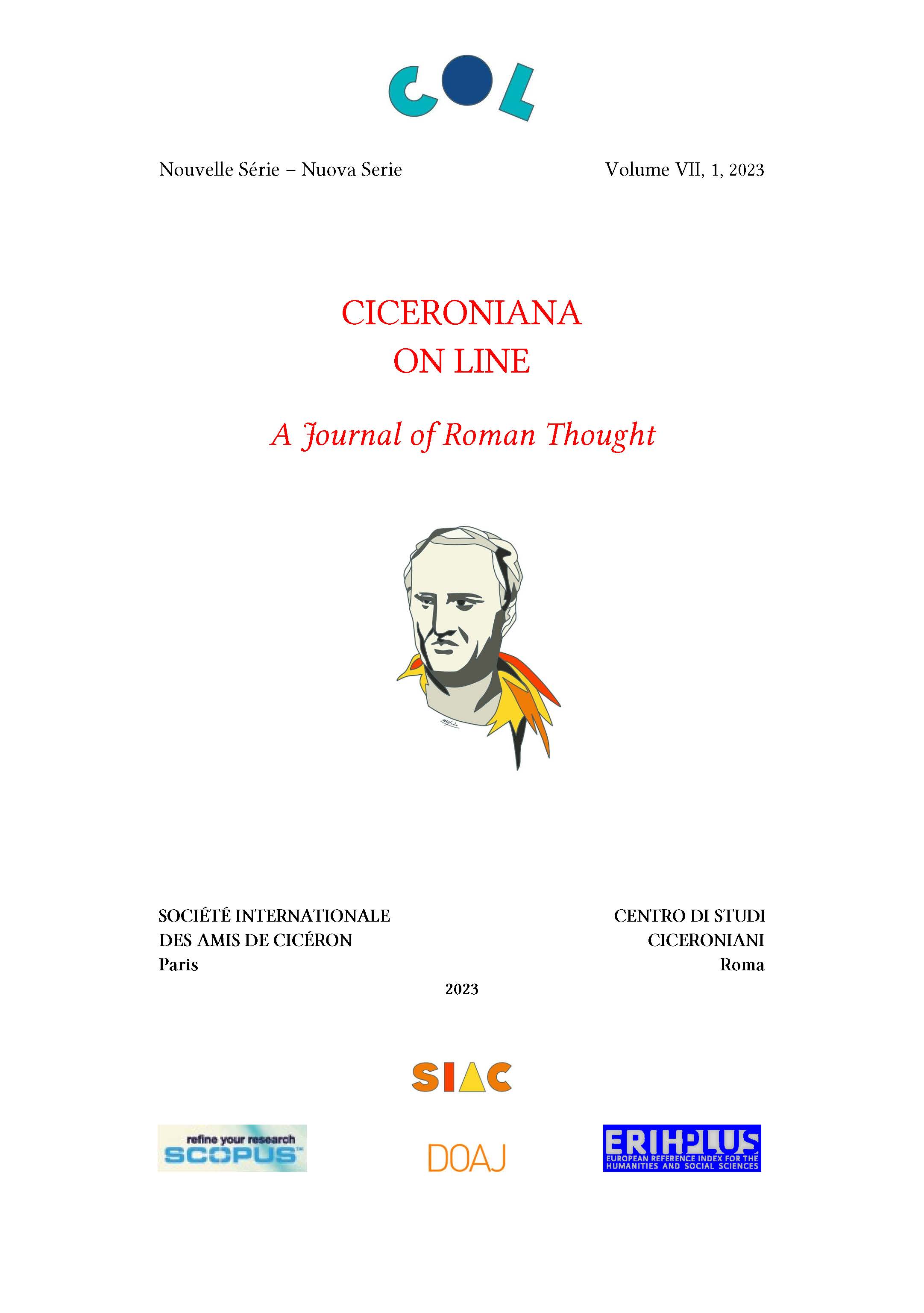Lucretius in Horace's Ars poetica. From words as leaves to the senex laudator temporis acti
DOI:
https://doi.org/10.13135/2532-5353/7741Abstract
The influence of Lucretius’ De rerum natura is clearly felt in Horace’s Ars poetica both at the macro-level of the construction of the text as a didactic work and at the micro-level of the individual iuncturae that compose it. This paper examines two crucial passages of the Epistle to the Pisos: the reflection on the use of neologisms crowned by the similarity between words and leaves (vv. 45-72) and the review of the characters corresponding to the four ages of man (vv. 156-178). The intertextual analysis of the two passages sheds light on the entanglement linking Horace’s treatment of the physical, ethical, and aesthetic doctrines of Lucretius; at the same time, it reveals Horace’s considerable degree of freedom in his constant dialogue with the De rerum natura. The acknowledgement of the centrality of the Lucretian model is also helpful in solving age-old textual problems, allowing for the acceptance of certain debated emendations (e.g. Bentley’s priuos in annos in v. 60) or the confirmation of the integrity the text (e.g. spe longus auidusque futuri in v. 172).
Downloads
Downloads
Published
How to Cite
Issue
Section
License
Authors who publish with this journal agree to the following terms:
- Authors retain copyright and grant the journal right of first publication with the work simultaneously licensed under a Creative Commons Attribution License that allows others to share the work with an acknowledgement of the work's authorship and initial publication in this journal.
- Authors are able to enter into separate, additional contractual arrangements for the non-exclusive distribution of the journal's published version of the work (e.g., post it to an institutional repository or publish it in a book), with an acknowledgement of its initial publication in this journal.


 Ciceroniana On Line is recognised by ANVUR (the National Agency for the Evaluation of the University System and Research) as a CLASS A journal for the Sciences of Antiquity, Philology, Literature and History of Art (
Ciceroniana On Line is recognised by ANVUR (the National Agency for the Evaluation of the University System and Research) as a CLASS A journal for the Sciences of Antiquity, Philology, Literature and History of Art ( The journal is included in DOAJ. The DOAJ listing of the journals is available at
The journal is included in DOAJ. The DOAJ listing of the journals is available at  The journal is indexed in
The journal is indexed in  The journal has been included in ERIH PLUS. The ERIH PLUS listing of the journals is available at
The journal has been included in ERIH PLUS. The ERIH PLUS listing of the journals is available at 

